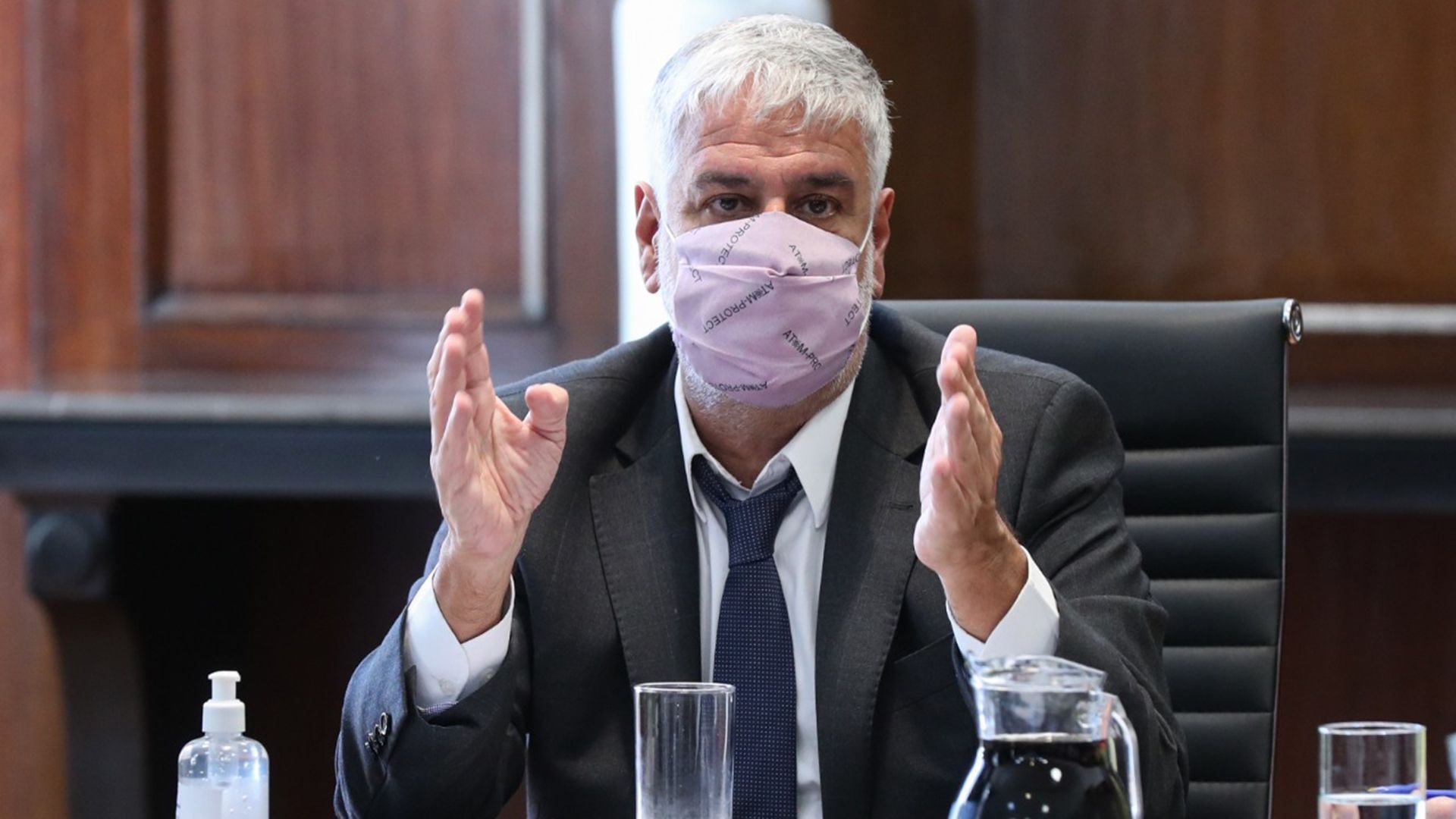
“Ask in food, they know.”
The overwhelming response of a supermarket chain to Infobae's question about gaps in the shelves and selling rationed goods, which increased in recent days, arrived right in the middle of today's meeting between the Minister of Productive Development, Matías Kulfas, and the Secretary of Commerce, Roberto Feletti, with businessmen from the Food Industries Coordinator (Copal) and the United Supermarkets Association (ASU).
The authorities accused the sector of speculators and threatened to use the law of supply and defense of competition, among other tools that they have already used without success.
In supermarkets, there are more and more gaps and signs of “you can only take two products”. This type of retraining is not new, but there are more and more. “The issue of missing is widespread and it is a matter of the industry, not the distribution chain... and the cartels, as happens in all shops, is so that no one is left without product,” added the supermarket source.
Missing products are a classic these days, especially oil, milk and products related to flour, especially noodles. So is the tension between manufacturers, distributors and outlets, especially supermarkets. Everyone points to the other in the middle of the price hike.
“In some cases, there may be shortages in the morning, but in the afternoon there is product. It is a matter of replenishment, but it is true that products impacted by the war in Ukraine, such as those linked to wheat flour, are in tension,” they acknowledged from another of the chains.
“You can't buy more than two products” posters, which we put oils, for example, has more to do with preventing smaller shops, like the Chinese, from coming from using us as wholesalers and taking everything away. It's because of the people,” they argued.
“The manufacturers of these products give us a specific stock number, it is not on demand. And that's why we sell with a limit,” they explained from another company.
Infobae found shortages in Vea, Carrefour and Dia, but the situation is generally repeated in all channels.

Sources in the sector acknowledge that there is no shortage for now, but there is tension in the supply chain. They also talk about a lack of variety in some product lines and difficulties in distribution. “We are not hogging: what arrives goes to the gondola,” they explained. This would have been noted by the Ministry of Commerce itself last Friday: they checked and could not find hoarding in the largest logistics centers.
The meeting
As Infobae pointed out, the meeting between Kulfas and the companies was brief. There was also Roberto Feletti, Secretary of Internal Trade and junior of Kulfas. As in other areas of government, Economy-Energy, for instance, the relationship between chiefs and subordinates is not always so linear and the internal ones are the order of the day. It is known: the relationship between Kulfas and Feletti is not good, but the Secretary of Commerce, but the secretary, who arrived at the end of last year as a “tough”, failed to twist his arm at prices. February inflation was 4.7% and recorded a year-on-year of 52.3%, but another data highlighted in the monthly report of Indec was that food increased significantly again and registered a 7.5% variation.

According to industry sources, today's talk talked about the creation of a trust that will feed on money resulting from the increase in withholding exports of soybean meal and soybean oil, which took place this weekend, to compensate for the increases in wheat, wheat flour and products derived from this essential input. A press conference is scheduled for this afternoon.
“With the wheat fund we seek to resolve the wholesale price of wheat, as of February, for that reason the trust operates, we need a few days for its formation,” Kulfas said in dialogue with FM Futuröck. “There is the question of increases that have no justification in costs, but rather speculative reasons. We are going to be very tough on that,” he said.

Asked about what it means to “be very tough”, Kulfas replied that the government seeks persuasion, but if it is not enough, “we will use the law of supply, the law of defense of competition, tools that we have already used in the pandemic.”
In addition, in the coming days the President is expected to convene employers from productive sectors and representatives of trade unions to discuss new pricing agreements.
KEEP READING:
Últimas Noticias
Debanhi Escobar: they secured the motel where she was found lifeless in a cistern

The oldest person in the world died at the age of 119

Macabre find in CDMX: they left a body bagged and tied in a taxi
The eagles of America will face Manchester City in a duel of legends. Here are the details

Why is it good to bring dogs out to know the world when they are puppies




